Lung Cancer Treatment Decisions: What Should Be Considered?
Lung Cancer Treatment Decisions: What Should Be Considered? from Patient Empowerment Network on Vimeo.
What should be considered when making lung cancer treatment decisions? Dr. Isabel Preeshagul shares the factors that may affect treatment options, as well as how the patient can collaborate with their healthcare team for optimal care.
Dr. Isabel Preeshagul is a thoracic medical oncologist at Memorial Sloan Kettering Cancer Center. Learn more about Dr. Preeshagul here.
See More From Engage Lung Cancer
Related Resources:
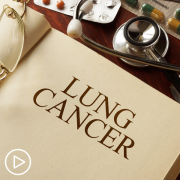
|
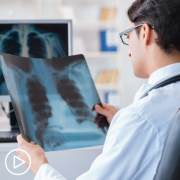
|
Transcript:
Katherine Banwell:
Dr. Preeshagul, let’s start with you introducing yourself, please.
Dr. Preeshagul:
So, my name’s Isabel Preeshagul. I’m a thoracic medical oncologist at Memorial Sloan Kettering Cancer Center, which is a large academic cancer center in the Northeast. And I’m part of a group of 24 thoracic oncologists.
I specialize in treating patients with non-small cell lung cancer, small cell lung cancer, mesothelioma, and some other thoracic malignancies but most really just focused on lung cancer. I have a very strong research interest in predictive markers for response to immunotherapy as well as targeted therapy.
Katherine Banwell:
Excellent. Thank you so much. What are the considerations when choosing a treatment for lung cancer?
Dr. Preeshagul:
So, that is a very weighted question. And I could talk about that for forever. But to try to be as succinct as possible, the most important thing is to really look at who you’re treating in front of you and try to treat the patient as a whole. It’s not only their diagnosis and their histologic subtype and their stage that’s important.
You really need to think about what’s important to the patient. Is someone a concert pianist or a violinist and giving them a treatment that could potentially cause neuropathy, could that be life altering for them? Or, are they of child-bearing age? What are their priorities?
So, that’s really important to me. Social aspects of a patient’s life, religious aspects, beliefs, ethical beliefs, all of that you need to take into consideration. And then getting more granular, you need to know about the tumor biology.
Do they have any driver alterations? Do they have any other predictive markers that may help you plan your treatment? So, it’s a lot of different things that go into treatment planning.
Katherine Banwell:
Just remind us what neuropathy is.
Dr. Preeshagul:
Sure. So, neuropathy is when the nerves that are in, I guess you could say, your fingers and toes start to damaged.
This can happen from diabetes, from having glucose that is too high for too long, or it can happen from certain chemotherapy agents that can affect the fine nerves in your fingers and toes and cause them to go numb. And this can really be painful. It can be life-altering. It can keep you up at night. It can make your sensation decrease.
So, if you’re walking on the floor, you may not feel a fine, little nail, or you may not even really feel the floor. And if you’re really focused on using your hands for playing the piano or violin or sewing or even any other kind of activity, it can really affect how well you’re able to perform.
Katherine Banwell:
Yeah. What is the role of the patient in making treatment decisions?
Dr. Preeshagul:
So, I think every doctor will give you a different answer for this. But for my practice, I really make sure that the patient is part of the team as well as family members, as long as the patient gives permission. I run everything by the patient, of course. I give them all the possible options ranging from ones that I think would be most efficacious to ones that I think are other options and of course, the option of no treatment, which is always an option, and sometimes, the best options.
So, I really say these are the things that we can offer you, but what do you feel most comfortable with? What’s important to you? And sometimes, patients are taken aback by this question because some patients like to be told, “Well, this is what we’re going do, and this is when we’re starting,” and X, Y, and Z. That’s not how I practice.
And it’s really important to me that the decisions come from the patient but are guided by me and my team.
Katherine Banwell:
Why is it important for patients to feel like they have a voice in their treatment?
Dr. Preeshagul:
So, that is such a good question. And I think a lot of it comes from the fact that you have a patient that had a completely normal life and all of a sudden get delivered this life-altering news that they have cancer. And everything that they had control over just seems to completely go out the window just in a matter of seconds.
So, making sure that a patient is back in the saddle and has control again and feels like they know what the next steps and feels like they know what they can expect is really important to them from what I can see. And I think that is something that allows them to feel like they’re a little bit more like themselves again.
They come to meet me. They don’t know anything about lung cancer. Their world has been completely rocked. And when they know their treatment plan and they know their stage and they know what to expect and they’re kind of a little bit more on autopilot, I can see in some patients them being able to exhale a little bit and feel like they’re in control again, and they know what – every Monday, I’m going to come and see Dr. Preeshagul. I’m going to get my treatment. I might not feel so good the next couple days, but I know the week after and the week after that, I might feel a little bit better. And they kind of are back in control again.






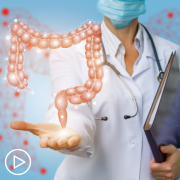

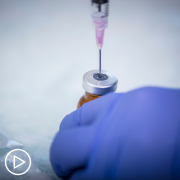

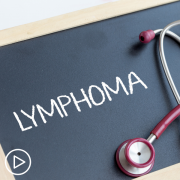

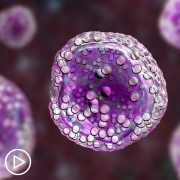

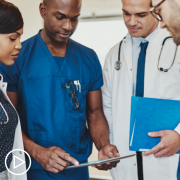



Katherine Banwell:
Let’s start with a basic question. What are the stages of colon cancer?
Dr. Krishnamurthi:
Colon cancer is categorized in four stages – stage 1, 2, 3, 4. This takes into account the tumor itself, how thick it is. These tumors start on the inside of the colon, like as a polyp. Then they can grow through the colon wall. The tumor thickness and has it spread to any of the lymph nodes? and has it spread further to a distant organ like liver or lungs?
That’s a tumor node metastasis. Considerations that go into the staging. Stage 1 colon cancer or colorectal cancer would be a very shallow tumor, maybe just in a polyp and hasn’t spread to any nodes or anywhere else. Stage 2 is when the tumor is thicker. It may be involving the full thickness of the colon or rectum but has not spread to any nearby lymph nodes. Stage 3 is when the cancer has spread to regional or nearby lymph nodes. Stage 4 is when it’s metastatic or it’s spread to another organ.
Katherine:
Okay. Thank you.